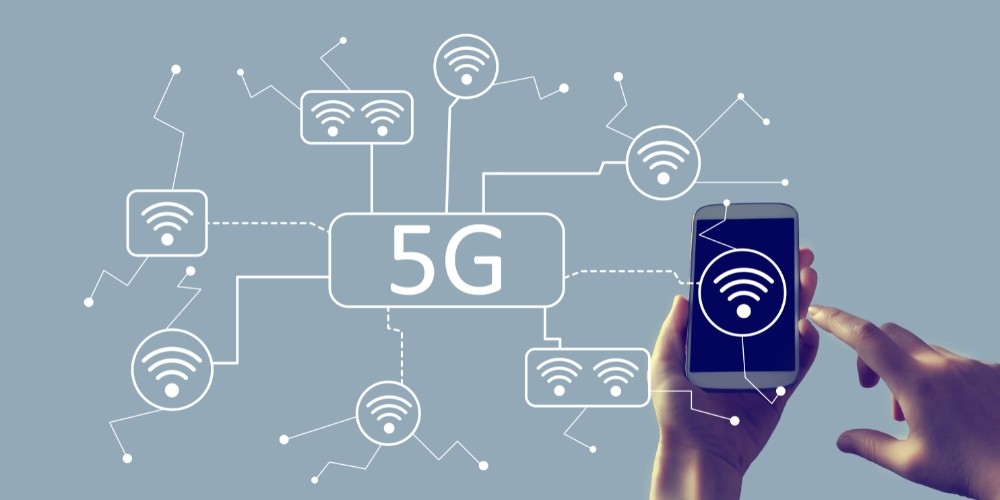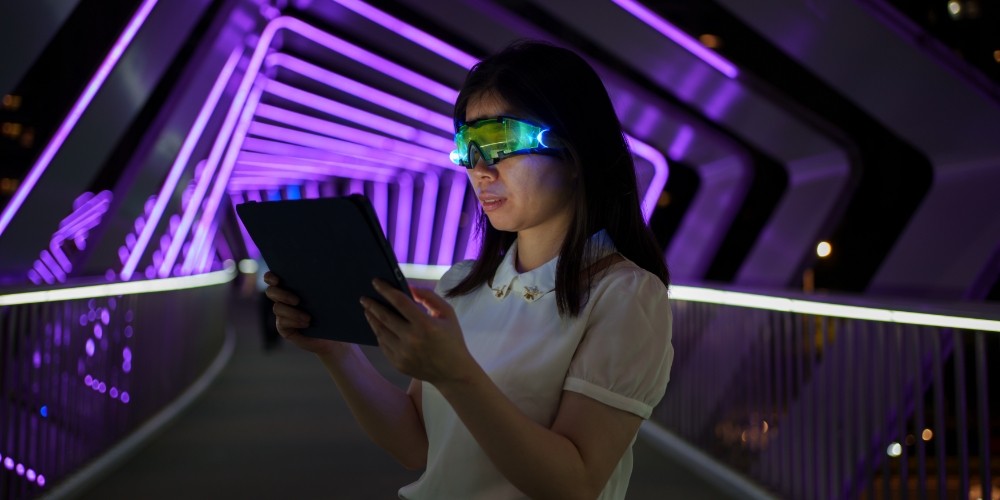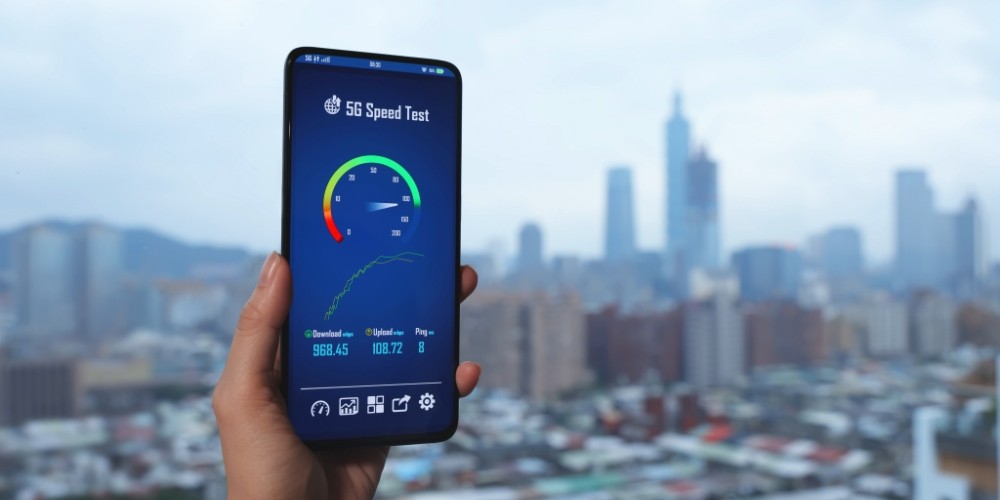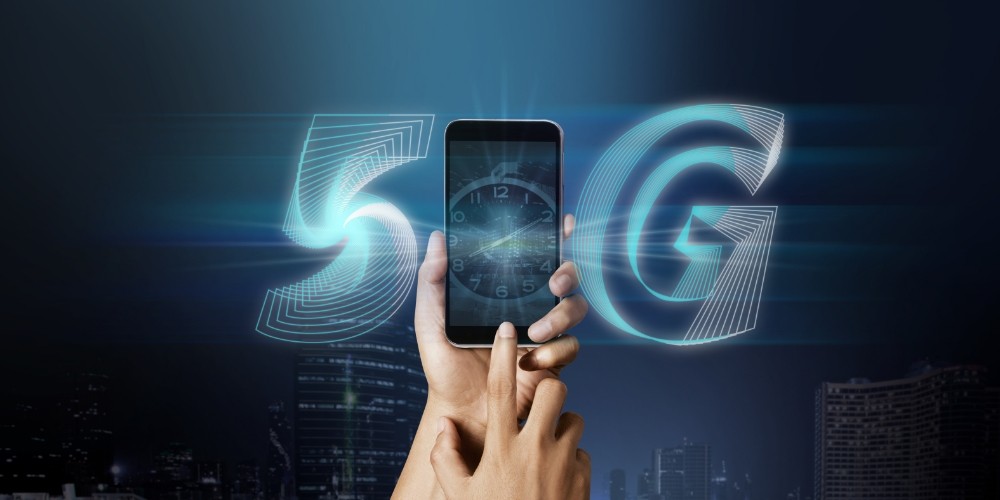The Impact of 5G on Mobile Gaming and Apps
Jan-20-2024

The emergence of 5G technology is set to redefine the landscape of mobile gaming and apps, propelling them into a new era of unprecedented speed, lower latency, and immersive experiences. This technological leap promises to elevate the mobile ecosystem, offering developers and users opportunities previously unthinkable. 5G, the fifth generation of mobile networks, promises to provide lightning-fast internet speeds, almost instantaneous communication between wireless systems, and the capacity to support many devices simultaneously.
In this article, we delve into the transformative impact of 5G on mobile gaming and apps, examining how this next-generation technology is enhancing existing applications and enabling the development of innovative game concepts and functionalities. The potential of 5G is vast, and its implications for the mobile gaming industry and app development are profound.
Revolutionizing Mobile Gaming with 5G

Mobile gaming, a sector once dominated by simple puzzle games or single-player adventures, is undergoing a remarkable transformation thanks to the advent of 5G. This new wireless technology is revolutionizing the gaming scene by enabling more complex multiplayer games that were previously reserved for PC or console platforms. Here's how 5G is changing the game:
- Reduced Latency: 5G significantly decreases latency to as low as 1 millisecond. This near-instant response time is crucial for multiplayer games, where even milliseconds can differentiate between victory and defeat. It enables a smoother, more responsive gaming experience, making games more enjoyable and competitive.
- Increase in Speed: With 5G, mobile internet speeds can reach up to 10 gigabits per second. This unprecedented speed means games and apps can be downloaded in seconds, updates are almost instantaneous, and in-game assets can be streamed without delay, ensuring high-quality visuals and gameplay.
- Enhanced Capacity: 5G networks can handle a significantly higher number of devices simultaneously. This capability opens the door for massively multiplayer mobile games, where thousands of players can interact in real time without experiencing degradation in performance.
- Immersive Experiences: The power of 5G also paves the way for the integration of emerging technologies like augmented reality (AR) and virtual reality (VR) into mobile gaming. These technologies demand vast amounts of data and low latency to deliver immersive experiences, something 5G is uniquely positioned to provide.
5G's impact on mobile gaming is far-reaching, changing not just how we play games but also the types of games that can be developed. It's paving the way for a future where mobile gaming can rival, or even surpass, the experiences offered by traditional gaming platforms.
Transforming Mobile Apps with 5G

While the gaming industry stands to gain significantly from 5G, its impact extends to mobile apps of all categories. From social media and streaming services to education and healthcare, 5G is set to transform the app ecosystem in several key ways:
- Real-time Data Processing: The low latency and high-speed capabilities of 5G mean mobile apps can process data in real time. This opens up new possibilities for apps that rely on instant data updates, such as stock trading apps, real-time translation services, and IoT applications.
- Enhanced Streaming Quality: 5G's high data transfer speeds can significantly improve streaming quality for video and music streaming apps. Users can enjoy 4K, and even 8K, video streams without buffering, making mobile devices a preferred platform for consuming media.
- New User Experiences: With 5G, app developers can create more engaging and interactive experiences. For instance, shopping apps can use AR to let users virtually try on clothes or view how furniture would look in their home in real time, significantly enhancing the shopping experience.
- Improved Telehealth Services: In the healthcare sector, 5G can facilitate telehealth services by improving the quality of video consultations and enabling real-time monitoring and diagnostics, making healthcare more accessible and efficient.
The capabilities of 5G extend far beyond just faster speeds. They enable a paradigm shift in how apps are developed, used, and experienced. As 5G becomes more widespread, we can expect significant innovations across the app ecosystem, driving forward a new era of digital experiences.
Challenges and Considerations
Despite the numerous benefits, the transition to 5G also presents challenges. The most significant obstacle is the infrastructure rollout, which is time-consuming and costly. Moreover, the adoption of 5G requires users to have compatible devices, potentially limiting initial reach.

For developers, the challenge lies in creating content that can fully leverage 5G's capabilities while still being accessible on older network technologies. Additionally, issues such as privacy, security, and health concerns related to wireless technologies need to be addressed to gain consumer trust and ensure the safety and wellbeing of all users.
Conclusion: A New Horizon for Mobile Entertainment and Services
The arrival of 5G heralds a new era for mobile gaming and apps, offering opportunities for incredible experiences, enhanced functionalities, and innovative developments. Its impact is set to reshape the mobile landscape, promising users instant access, immersive experiences, and seamless interactivity on an unprecedented scale.
As we stand on the cusp of this technological revolution, both excitement and challenges lie ahead. The potential of 5G extends far beyond speed improvements, unlocking new possibilities for creativity and engagement in the mobile domain. As the infrastructure expands and adoption increases, the future of mobile gaming and apps looks brighter and more dynamic than ever.







